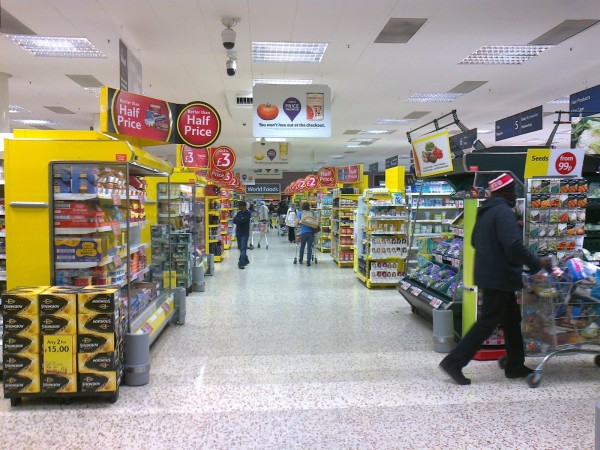Supermarket chains, more often than not, dominate our lives and find a part of common, everyday discussion. They stand at an intersection of convenience and every-day shopping. Do they not? Whether it’s a young working couple, a nuclear family, a college-goer or an entrepreneur always on the run, there’s always something essential perhaps inextricably tied to the supermarket. It many ways, it is our mega convenient store out there.
To most of us, it’s our trusted go-to choice; in the sense that most things that one is not able to figure out elsewhere are, more often than not, sought at the convenient store. The same can be said about Tesco. It’s quintessentially British.
It’s quintessentially convenience. Few companies have enabled England to dominate the discussion or have catapulted the country known for marvelous engineering and literary exploits, to the sphere of retail business the way Tesco has.
In fact, it won’t even be an irrational submission to suggest that so reliant are the English on this ever-bankable brand that one can’t imagine life today without a Tesco being in the nearabout whether in Yorkshire, Sussex, Central London or elsewhere.
Buoyed by an incredible following backed by the growth in the local British market, Tesco went on an impressive expansion plan in Asia. It was spurred by the hope and ambition that the businesses, particularly in Malaysia and Thailand, would go on to thrive and become valuable contributors to the global growth.
But alas, not everything always falls into a plan, does it? How can it ever in this age marked by rabid unpredictability where sluggish growth is akin to a constant door-knocker on a quiet morning?
And here is the biggest development from Tesco from Asia’s standpoint. It turns out that Tesco is on its course to withdrawing from Asia, where the dominant markets stemmed from businesses in Malaysia and Thailand. The Thai and Malaysian operations, therefore, it has been confirmed are going to shut down.
The firm is now considering selling the operations in these formerly important markets.
Reuters, in its capturing of the important report, on the development covered the scope of the current scope of the operations. It shared the Company statement:
“Tesco confirms that, following inbound interest, it has commenced a review of the strategic options for its businesses in Thailand and Malaysia, including an evaluation of a possible sale of these businesses,” it said in a statement on Sunday.
Furthermore, it was also told that, “No decisions concerning the future of Tesco Thailand or Malaysia have been taken and there can be no assurance that any transaction will be concluded.”
That being said, the falling stock prices also indicate the current market activity for the famous British retail giant.
Tesco trades from 1,967 stores in Thailand and 74 in Malaysia. In the six months to Aug. 24 the businesses together generated sales of 2.6 billion pounds ($3.3 billion), up 1% at constant exchange rates, and operating profit of 171 million pounds, up 42.3%.
What should come as a bit of a setback for the famous brand in the realm of retailing is the fact that it wasn’t too long ago that it had been considering an expansion in the Thai market, citing an opportunity for as many as 750 new convenience stores on a medium-term expansion plan.
That told, if the widely-known British retailer does quit the two Asian markets, then it’s overseas operations will stem from Ireland- where it is already present- along with the loss-making stores that are already operating in the European regions of Slovakia, Czech Republic, Slovakia, and Poland.


